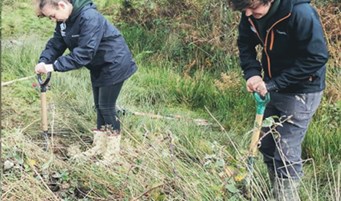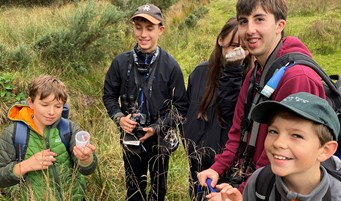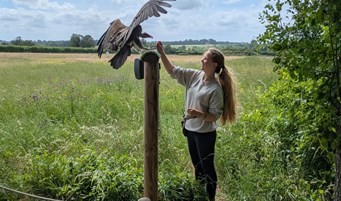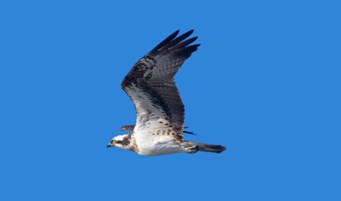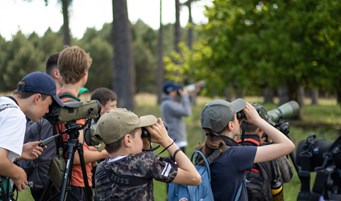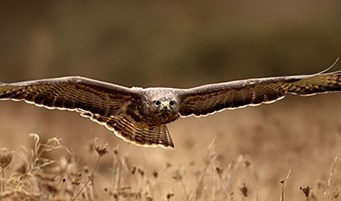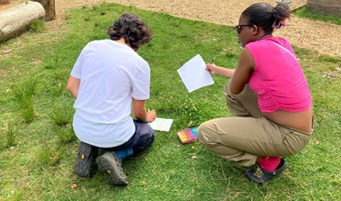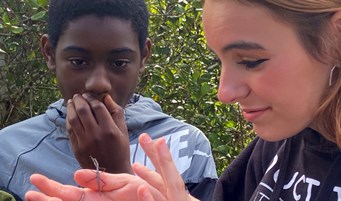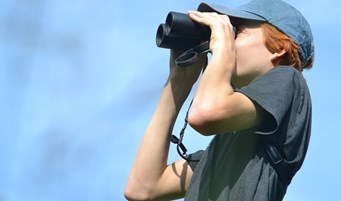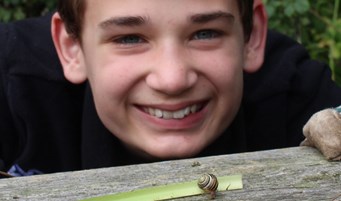We spoke to Rachel Schofield from C. J. Wildlife, sponsors of our Young Ambassador programme, who had this advice when feeding and looking after birds in your garden:
Birds need to spend their days consuming high energy, high calorie foods to help them keep warm during the freezing nights. Any unexpected frost or blanket of white can make normally easily accessible food, disappear, causing distress and even worse for your garden birds. Make sure your feeders are filled up every day ready for the dawn and dusk rush hours. Try to offer high energy foods which are easily consumed such as sunflower hearts which are already de-husked so most efficient way for birds to feed. Peanut cakes and suet treats are super high in calories and a perfect way for birds to take on the essential fats and nutrients they need in the winter. Don’t forget that different bird species prefer to feed in different ways, so cater for them on the ground as well as in hanging and mounted feeders.
A clean supply of water is also vital at this time of year for drinking, especially for birds feeding on a diet of dry seeds, but also to help keep their plumage in tip top condition to maximise the insulation provided by their feathers. Check bird baths daily to ensure they are not frozen over, but do not add any anti-freeze products or salt to the water as these are highly toxic to birds and other wildlife.
Check bird baths daily to ensure they are not frozen over, but do not add any anti-freeze products or salt to the water as these are highly toxic to birds and other wildlife.
Also putting up nest boxes now can not only provide shelter from the cold during the long cold nights but also make it more likely to become the chosen home for a family in the Spring as the birds have made it their territory throughout the winter.
How to keep feeding areas clean and safe:
It’s also important to ensure feeding systems are cleaned regularly to avoid the spread of bacteria and keep your birds healthy, so take this into account how easy this is to do when choosing your feeder.
Clean feeders regularly with a biological, disinfectant cleaner, rinse well then leave to air dry before refilling and using again. It is important not to leave uneaten food to rot at the bottom of feeders so gauge how much your birds are eating daily. Choose feeders that are easy to dismantle and clean with minimal effort, so it is an easy job to do and not a chore – see it as just a regular monthly wash of the dishes!
Water containers should be emptied and replenished daily in warm weather, and must be rinsed thoroughly after using any sort of detergent. Adding a natural sanitiser such as Citrosan to the water is a wise precaution, particularly if lots of birds are using the bird bath.
Birds can carry a variety of infections that are potentially dangerous to humans and domestic animals, so good hygiene really is crucial. Hands should always be washed thoroughly after cleaning or refilling feeders, and equipment that is used for cleaning bird feeders and feeding areas should not be used for any other purpose.

